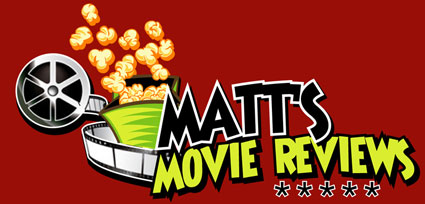|
|
|
1976
|
NETWORK
|
|
|
STARRING:FAYE
DUNAWAY,WILLIAM HOLDEN,ROBERT DUVALL,PETER FINCH,WESLEY ADDY,
MARLENE WARFIELD, BEATRICE STRAIGHT, NED BEATTY
WRITTEN
BY PADDY CHAYEFSKY
PRODUCED
BY HOWARD GOTTFRIED
DIRECTED
BY SIDNEY LUMET
GENRE:DRAMA
RATED:AUSTRALIA:M/UK:15/USA:R
RUNNING
TIME:121 MIN
|
Written
by praised playwright and screenwriter Paddy Chayefsky and directed
by Sidney Lumet, the acclaimed director of 12
Angry Men and Serpico,
Network tells the story of several key figures who work at
the recently bankrupt UBS television station which has been given
a new lease of life after it was required by the Communications Corporation
of America (CCA). Howard Beale (Peter Finch), senior anchor and one
time UBS golden boy, loses his mind and threatens to kill himself
on air after he is fired. His best friend and president of the news
division Max Schumacher (William Holden) allows Beale to vent his
frustrations on air in retaliation to the actions of CCA liaison Frank
Hackett (Robert Duvall), who has decided to re-structure the news
division without Schumacher's consent. Beale's on air outburst creates
a media storm and is a surprising rating winner. This catches the
attention of the ruthless head of original programming Diana Christensen
(Faye Dunaway) who wants to develop a show around Beale as apart of
a series of programs which the American public can vent their anger
through. Hackett green light's Diana's idea and fires Schumacher for
questioning his authority. Schumacher begins an affair with Diana,
who is crowned the new queen of television after Beale becomes a monster
hit as people watch UBS in droves as he rants and raves against the
establishment. But when Beale criticizes the business handlings of
CCA on live television, UBS' dream run is threatened and drastic measures
need to be taken.
Much like the present, Network shows how television - the ultimate
tool which people rely on for entertainment and information - can
be a manipulative and exploitive device which preys on the weaknesses
and temptations of its viewers, who have been shunned aside and lied
to by a world gone crazy (in this case Vietnam, Watergate and the
depression are a big factor).
Chayefsky's hindsight is scary in regards to where television was
headed. The violence, T&A and vulgar language that was the basis
of UBS' then ground breaking programs are now the norm of today, with
The Soprano's, Sex and the City and Californication
just a few examples of how exploitive and immoral TV has become, dragging
social values to the gutter and celebrating the lowest standards of
humanity.
It is all about seduction through marketing and the infectious ring
of the all important catch phrase, with Beale's "I'm as mad as
Hell, and I'm not going to take it anymore!" stimulating the
hearts and minds of his viewers who - in an electrifying scene which
exhibits the unique vision and craftsmanship of Lumet - all unite
for a moment of immortality as they scream outside their windows in
defiance to those who have oppressed them. This is a film that spoke
about the corruptive nature of greed a decade before Wall Street,
and focused on the issues of corporate take over and how big business
controls the mass media. And yet, amongst all of these serious issues
lies a comedic streak, a mad cap brand of humour which is high lightened
in a scene where a group of left wing political extremists turned
TV stars argue over distribution rights.
The cast is magnificent. Faye Dunaway gives an excellent performance
as the career driven, incredibly intelligent and ruthlessly ambitious
producer; William Holden shines in what seems to be the only character
at UBS who contains any feelings of human decency, and Peter Finch
is a revelation as the mad prophet of the airwaves. Robert Duvall
is sensationally sinister as the ferocious corporate lackey, while
Ned Beatty and Beatrice Straight give memorable, astonishing minor
performances, Beatty in particular delivering a striking, fire and
brimstone monologue within a dimly lit conference room (a terrifically
well directed and written scene).
One of Lumet's best and a still shockingly relevant motion picture
for our life and times. |
|
|

